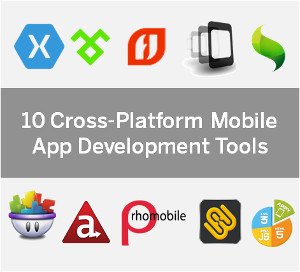Here’s Why You Must Provide Effective Mobile App Services
Games and mobile apps are known for their all new scale and customer growth, unlike things that have been seen in Web commerce or traditional scale. It has been seen many times that small unknown apps get viral overnight because developers put serious efforts in app maintenance services. As a result, millions of people install them on their smartphones.
Here is a live example to prove this statement. Everyone is familiar with the social media platform Instagram. According to the statistics, Instagram has to wait for 3 months to get one million users. And within one year, the number of downloads crossed the milestone of 10 million users.
In many cases, user growth means maintaining the balance between offering services to users and keeping the lean-operation. Providing customer support and services to users are considered as some of the most important tasks.
Millions served?
With the increase of user base, the volume of issues increases too. Users who just have installed the app may try to reach the customer care services of the app via emails, phone calls, and other ways to resolve their problems.
In the year 2012, when Facebook purchased Instagram, that application had more than 40M users, with only 13-person team. That time, on an average, each employee including the CEO of Instagram, was handling more than 3M users.
It was like some local diners with only handful of staff are trying to serve ten million customers. This practice is clearly not sustainable because the more time staff spend to answer each customer’s concerns, the less service they would be able to deliver to the rest. With focusing only on new customers’ issues, they will lose old, loyal customers who would not get well treated.
But for games and mobile apps, it is the reality that if unprecedented scale gets combined with the small amount of staff then each member might be providing support and services to millions of users.
So for games and mobile apps, when anticipation has been created with rapid scale, but also wish to provide the best customer services, the solution was support automation.
Support automation sometimes means Support Zero. It enables the app developers to focus only on developing the apps rather than resolving customers’ issues.
But the question that comes to everyone’s mind is that does support zero mean zero support. The answer is certainly NO!
All customer communication is not created same. As some users contact customer service when they want any technical help. Some get in touch to give feedback about the services, while others want to know more about the company, app, and its services.
By keeping the number of technical issues low, teams get free time and energy to focus on the core business activities.
After automating the trouble ticket part of customer communication, mobile app developers get able to give more time and energy on some higher-value customer interaction points such as product feedback which can be utilized for inbound sales or product development inquiries which may result in future businesses, without any need of compromising the customer service quality.
Keys To Get Support Zero
Below mentioned are some key points to attract as well as retain users:
1. Answer First, Ticket Last: The tickets get generated when users ask for help, so when users get enabled to find answers on their own before these problems become the ticket, then it can reduce the ticket volume.
There are many apps that have made a default page with support email address and phone number in it, which results in the generation of the ticket.
Developers can create some user-friendly knowledge base or self-service FAQ within their apps for empowering users to get the help and reducing the volume of inbound-tickets.
2. Use A Shared Inbox. The shared inbox allows the customer service agents to view all the issues and resolve them without any need of another human triage. Unlike traditionally, where support agent had their own inbox and that was being managed by someone else. In this process, customers were being assigned on the case-by-case basis. But this approach was resource intensive and users were left waiting until they were assigned to the new agent.
3. Sort By Wait Time. The approach of first-come-first-serve seems natural, but that is not true in most of the cases.
There are some ticket queues that sort chronologically. In this way, the one which arrived last goes to the top for resolution.
Instead, developers should ensure that those queries that have been on the list for the longest get resolved first. There is a need to sort out the tickets based on the date of interaction.
4. Use Bulk Actions. With the increase in the app user base, the similar issue seems to grow in hundreds and thousands number. So rather than managing each query individually, developers can apply the bulk actions for enabling the support team to choose similar tickets or queries and send the response to all of them at the same time, and in the same way.
At Last,
These keys can enable the mobile app businesses to get Support Zero and offer high-level customer support and services and scaling quickly without wasting resources and time on managing the endless tickets. It will also improve
mobile app support maintenance services.


 Ritesh
Ritesh







